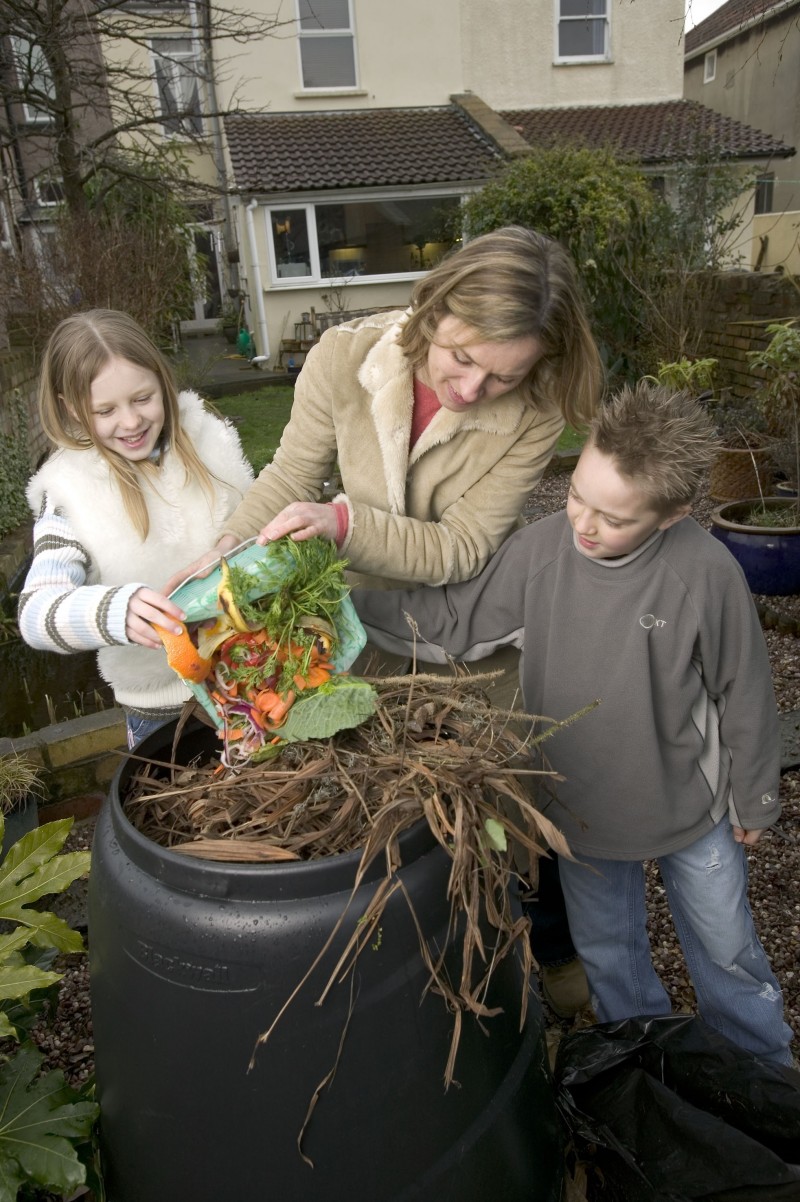Composting

Composting at home is a great way to reduce the amount of waste that goes in your bin.
Quick links
What is compost?
Compost is simply decomposed organic material: micro-organisms, worms and insects break down this matter to create rich, usually soft, sweet-smelling soil. While composting may seem mysterious or complicated, it’s really a very simple and natural process. You can recreate this natural process at home by intentionally composting your organic waste to create this soil enhancer.
Step by step guide to composting
- Locate your compost bin preferable in either partial shade or a sunny spot as this can help speed up the composting process.
- You should site your bin on soil as it is easier for beneficial microbes and insects to gain access to the rotting material. It also allows for better aeration and drainage.
- Gather all your vegetable peelings, grass clippings and green yard waste but be sure to mix with some 'brown' materials such as shredded paper and cardboard.
- Turn your pile as often as you can. Each time you turn, it will speed up the process.
- Keep your compost damp but not wet. As you add material to your pile make sure that each layer is moist as it is added. During the summer your pile will dry out and the composting process will slow down.
- Add compost to your garden a few weeks before you plant. Let the compost have a chance to work into the soil. Try to mix it in and let it sit before you plant.
Getting the 'right mix' in my compost bin
The key to getting great compost is to ensure that you get the right mix. You should try and get a 50/50 mix of green waste (such as fruit and vegetable peelings and garden clippings) and brown waste (such as newspaper, shredded paper or cardboard). Getting this mix right will help your compost to break down quicker.
What shouldn't I add to my compost bin?
There are some things you should never add to your compost bin including:
- Meat
- Cooked vegetables
- Dairy products
- Dog waste and cat litter
- Nappies
- Diseased plants
- Perennial weeds.
Composting FAQs and top tips
We have put together a list of frequently asked questions, top tips and alternatives to home composting, which you can download at the bottom of the page. The Recycle Now website also has more tips on how to get the best out of your compost.